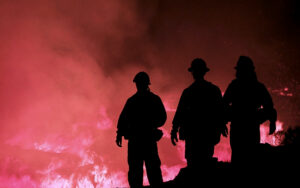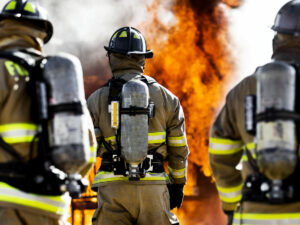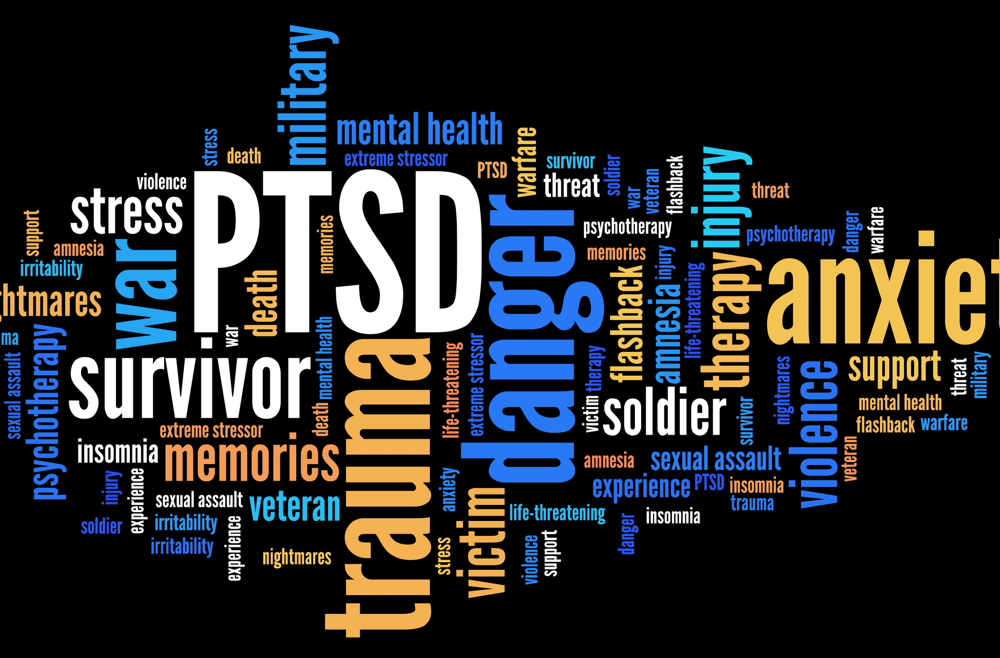When you’re a first responder, saving lives is your job. But what happens when the trauma of those experiences follow you home? First responders are at high risk for developing PTSD, due to the amount of stress and violence they witness on the job. In this blog post, we will discuss the signs and symptoms of first responder PTSD, as well as ways to deal with the trauma of saving lives.
Contents
Who Are First Responders?
First responders are the first to arrive on the scene of an emergency, such as a fire, car accident, or natural disaster. They are responsible for providing medical care and support to those in need. They also often work closely with law enforcement to ensure the safety of the community.
Some of the primary first responders include:

- Firefighters
- Paramedics
- Doctors and nurses
- Police officers
- Search and rescue workers
- Essential service providers
- Emergency medical technicians (EMTs)
- Military personnel
- Law enforcement officers
- Hotline operators
- Disaster relief workers
- Flight attendants
All these professions constitute as first responders due to the high-stress nature of the job.
Defining First Responder PTSD
As discussed above, first responders have a lot of responsibility and stress placed on them. This can often lead to the development of PTSD, or post-traumatic stress disorder.
Post-traumatic stress disorder is a mental health condition that can occur after someone has experienced or witnessed a traumatic event. PTSD can develop in anyone, but it’s more common in people who have experienced long-term or multiple traumas, such as first responders.
First responders are at a higher risk for developing PTSD due to the nature of their job. They witness traumatic events on a regular basis, which can take a toll on their mental health. People in this profession often see things that most people never will. They witness death, destruction, and violence on a regular basis. This can lead to the development of PTSD symptoms.
Additionally, first responders often have a lot of responsibility. They are also expected to perform under high-pressure situations. This can also lead to the development of PTSD symptoms.
Risk Factors for Developing First Responder PTSD
First responders are at high risk for developing PTSD due to the nature of their work. They have to face heavily traumatic events, which can lead to the development of symptoms. Some of the risk factors for developing PTSD include:
First responders often do not have enough support from their family or friends. This can be due to the fact that they face constant exposure to traumatic events, which can make it difficult for them to talk about what they’re going through. This can be due to the gap or hostility that can develop between first responders and their loved ones.
Additionally, first responders may feel like they need to be strong for their loved ones, which can prevent them from seeking help.
Experiencing injuries or physical trauma
First responders are at risk for injuries or physical trauma due to the nature of their work. They may be exposed to hazardous materials, which can lead to health problems. For example, firefighters may be exposed to smoke and chemicals, which can damage their lungs. Additionally, first responders may be exposed to dangerous situations, which can lead to physical injuries. For example, police officers may face injuries while apprehending a suspect.
The physical trauma resulting from these injuries can lead to the development of PTSD symptoms. Moreover, it can also result in physical disorders or difficulties such as chronic pain, which can further complicate the condition.
Witnessing brutal injury or death
Undoubtedly, death is one of the most traumatic experiences a person can go through. First responders are constantly exposed to death, which can take a toll on their mental health. They may witness people being killed or injured, which can be very traumatizing.
This is especially true for first responders who have lost a colleague or friend in the line of duty. The death of a loved one can lead to the development of PTSD symptoms.
For example, a police officer who witnesses his partner being killed in a shootout may start to experience intrusive thoughts and memories of the event. He may also have difficulty sleeping or concentrating, and he may feel on edge all the time.
Experiencing extreme graphic violence

First responders may be exposed to graphic or violent scenes, which can be traumatizing. For example, they may see victims of car accidents or people who have been brutally murdered. Since a part of their job is to help people in need, they have to face the adverse and sometimes ugly harsh reality. This exposure can lead to the development of PTSD symptoms.
Some examples can include incidents such as the September 11th terrorist attacks or the Sandy Hook Elementary School shooting. These events can have a lasting impact on first responders, and they may develop PTSD as a result.
Previous trauma or mental health issues
First responders who have a history of mental illness are at a higher risk for developing PTSD. This is because they may be more susceptible to the effects of trauma. Additionally, people with mental illnesses often have difficulty coping with stress, which can make it harder for them to recover from a traumatic event.
For example, someone who was sexually abused as a child may be more likely to develop PTSD if he or she is exposed to graphic images of sexual violence. Similarly, someone with depression may have trouble sleeping or concentrating after witnessing a car accident. They may also start to feel hopeless and helpless, which can make it difficult for him to cope with the trauma.
PTSD can be a very debilitating condition, but there are treatments available that can help first responders deal with the symptoms. If you or
Dealing with the aftermath

Typically, we only see the work of first responders when something bad happens. We don’t often think about what they go through after the event is over. However, for first responders, the aftermath of a traumatic event can be just as difficult as the event itself.
Most of the time, the emotional and mental labor these workers put into their work also goes unnoticed. For example, someone working in a suicide hotline may be traumatized by the callers they speak to. Similarly, a police officer may be affected by the violence he witnesses on a daily basis.
The trauma that first responders experience can have a significant impact on their mental health. If not properly addressed, it can lead to the development of PTSD symptoms.
Signs And Symptoms

PTSD symptoms can vary from person to person, but there are some common signs and symptoms that first responders may experience. These include:
- Intrusive thoughts or memories of the trauma
- Flashbacks or nightmares
- Avoidance of people, places, or things that remind you of the trauma
- Negative changes in your mood or emotions
- Feelings of guilt, shame, or worthlessness
- Loss of interest in activities you used to enjoy
- Difficulty concentrating or having little to no focus
- Irritability or outbursts of anger
- Hypervigilance or feeling on edge
- Exaggerated startle
- Unable to shake the feeling that something bad is going to happen
- Savior complex (defined as “the need to rescue or save others as a way of making up for one’s own feelings of helplessness”)
- Neglecting your own needs
- Isolation from friends and family
Additionally, it may also manifest in physical symptoms such as:
- Headaches
- Stomach problems
- Chest pain
- Rapid heart rate
- Excessive sweating
- Fatigue or trouble sleeping
For some first responders, these symptoms can be so severe that it interferes with their ability to perform their job. This is often referred to as “vicarious trauma” or “compassion fatigue.”
Compassion fatigue is a type of secondary traumatic stress that can occur in people who work with trauma survivors. It’s characterized by symptoms of anxiety, depression, cynicism, and burnout. Excessive care and compassion can also lead to feelings of hostility, resentment, and apathy. People who experience compassion fatigue often have difficulty sleeping, concentrating, and may develop PTSD.
All of these symptoms can impact a first responder’s ability to do their job. It’s important for first responders to be aware of the signs and symptoms of compassion fatigue so they can seek help if necessary.
Treatment Options

If you’re a first responder and you’re struggling with PTSD, there are treatment options available. Some common treatments include:
- Cognitive-behavioral therapy (CBT): This type of therapy helps people identify and change negative thinking patterns. CBT can also help people learn how to cope with stress in healthy ways.
- Eye movement desensitization and reprocessing (EMDR): This is a type of therapy that uses eye movements or other forms of bilateral stimulation to help people process trauma memories. EMDR has been an effective treatment for PTSD.
- Mindfulness-based stress reduction (MBSR): This is a type of mindfulness practice that helps people learn how to be present in the moment and cope with stress. It eases symptoms of anxiety and depression.
- Prolonged exposure therapy (PE): This is a type of CBT that helps people confront their trauma memories and emotions in a safe and controlled environment. This can help people work through their trauma and reduce PTSD symptoms.
- Medication: There are various medications that can help people with PTSD manage their symptoms. These include antidepressants, anti-anxiety medications, and antipsychotics. The mechanisms of these medications work by altering the levels of neurotransmitters in the brain.
- Support and peer groups: There are many support groups available for people with PTSD. These can provide a space for people to share their experiences and connect with others who understand what they’re going through. These groups are often moderated by a mental health professional.
If you’re a first responder and you’re struggling with PTSD, don’t hesitate to seek help. There are many treatment options available that can help you manage your symptoms and live a healthy, happy life.
In addition to professional help, there are a lot of self-care techniques that can be helpful for first responders dealing with PTSD. Some self-care tips include:
- Get regular exercise: Exercise releases endorphins, which have mood-boosting effects. It can also help reduce stress and anxiety.
- Eat a healthy diet: Eating nutritious foods helps improve mood and energy levels. It’s also important to stay hydrated by drinking plenty of water.
- Get enough sleep: Sleep is essential for good physical and mental health. Lack of sleep can worsen symptoms of anxiety and depression.
- Make time for relaxation: Relaxation techniques such as yoga, meditation, or deep breathing can help reduce stress and promote calmness.
First responders play an important role in our society, but they often deal with a lot of trauma and stress. If you’re a first responder struggling with the aftermath of a traumatic event, there is help available. Reach out to a mental health professional or one of the many support groups that exist for people with PTSD. With the right support, you can manage your symptoms and live a healthy, happy life.
Conclusion
Conclusively, it is evident that first responders are at a higher risk for developing PTSD due to the nature of their job. It is important for first responders to be aware of the signs and symptoms so they can seek help if necessary. The overall well-being of all essential workers is important in order to maintain a functional and healthy society.
If you or someone you know is struggling with PTSD symptoms, you may reach out to Mantra Care. We have a team of compassionate mental health professionals who can provide you with the help and support you need. We globally offer a variety of therapeutic services at affordable rates. You may visit our website to book a therapy session or download our free Android or iOS app for more information!


